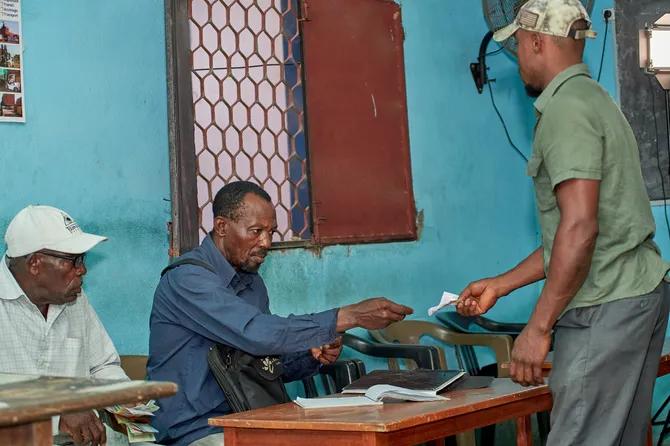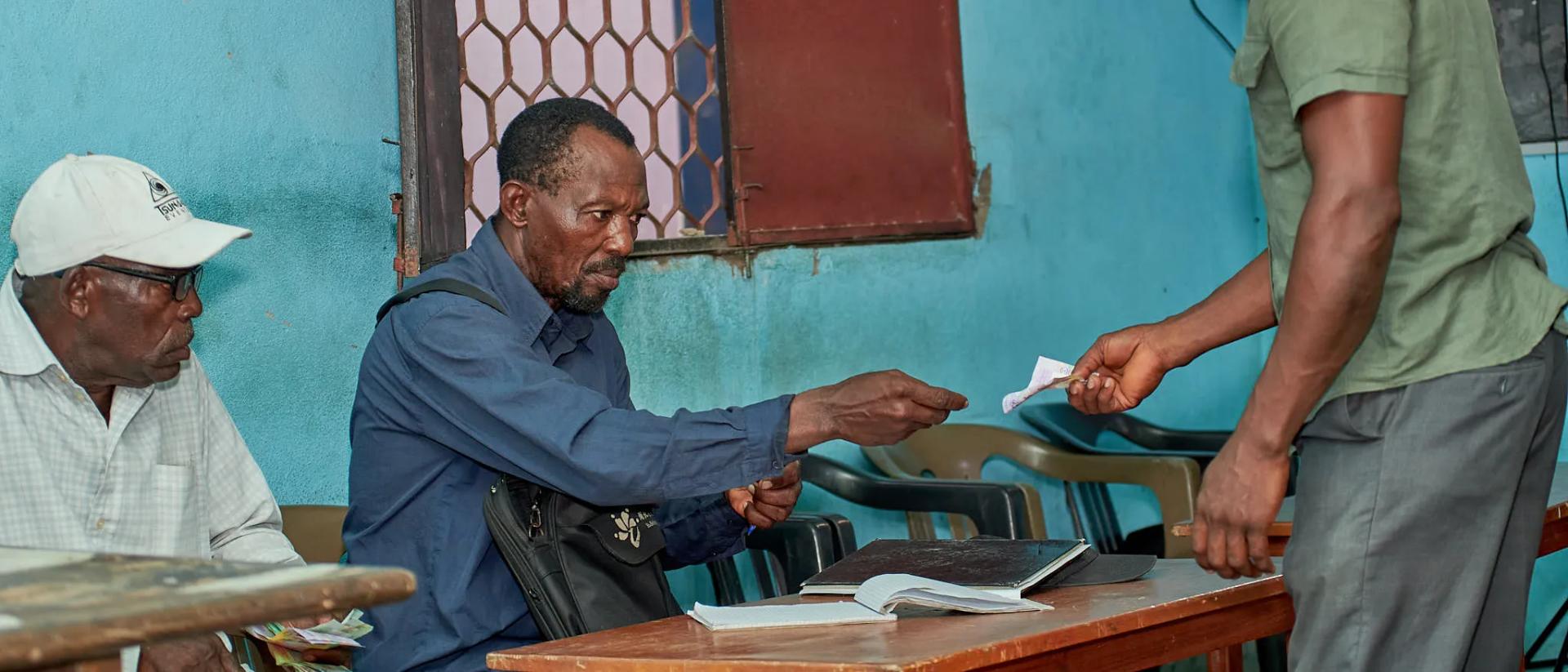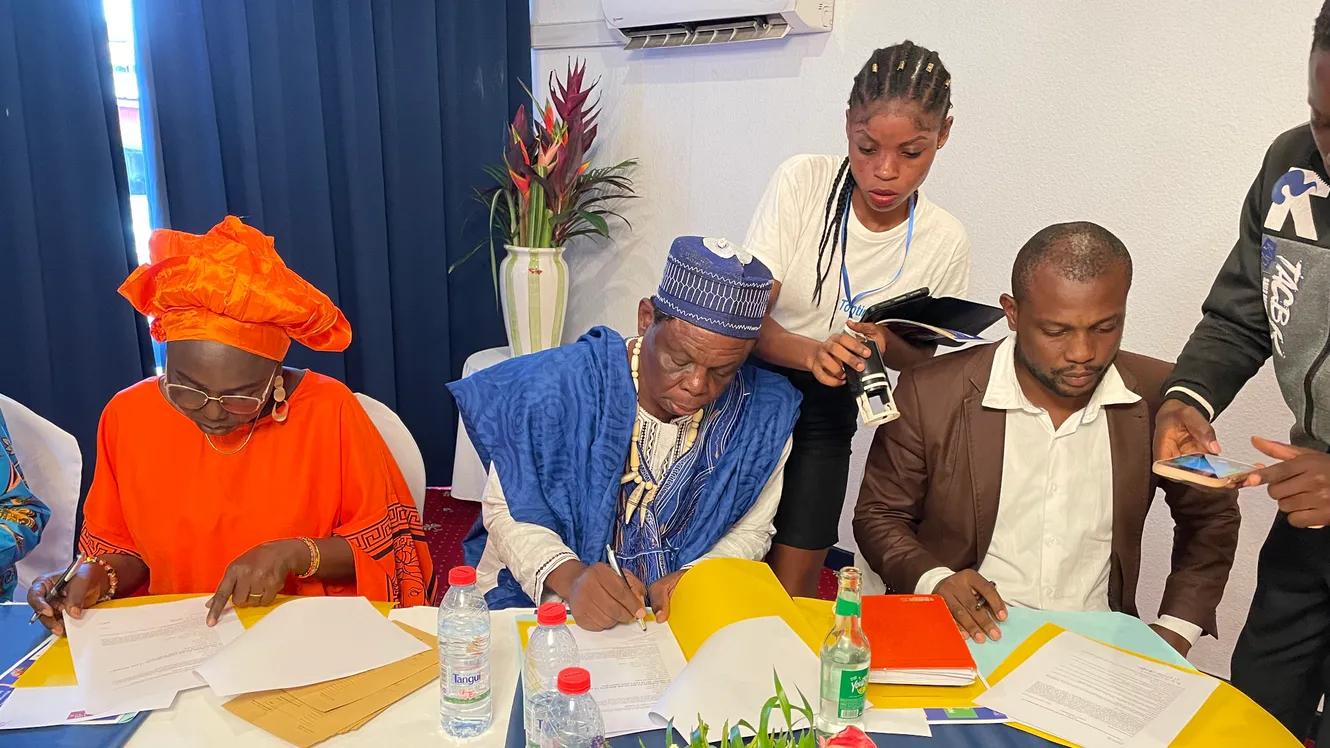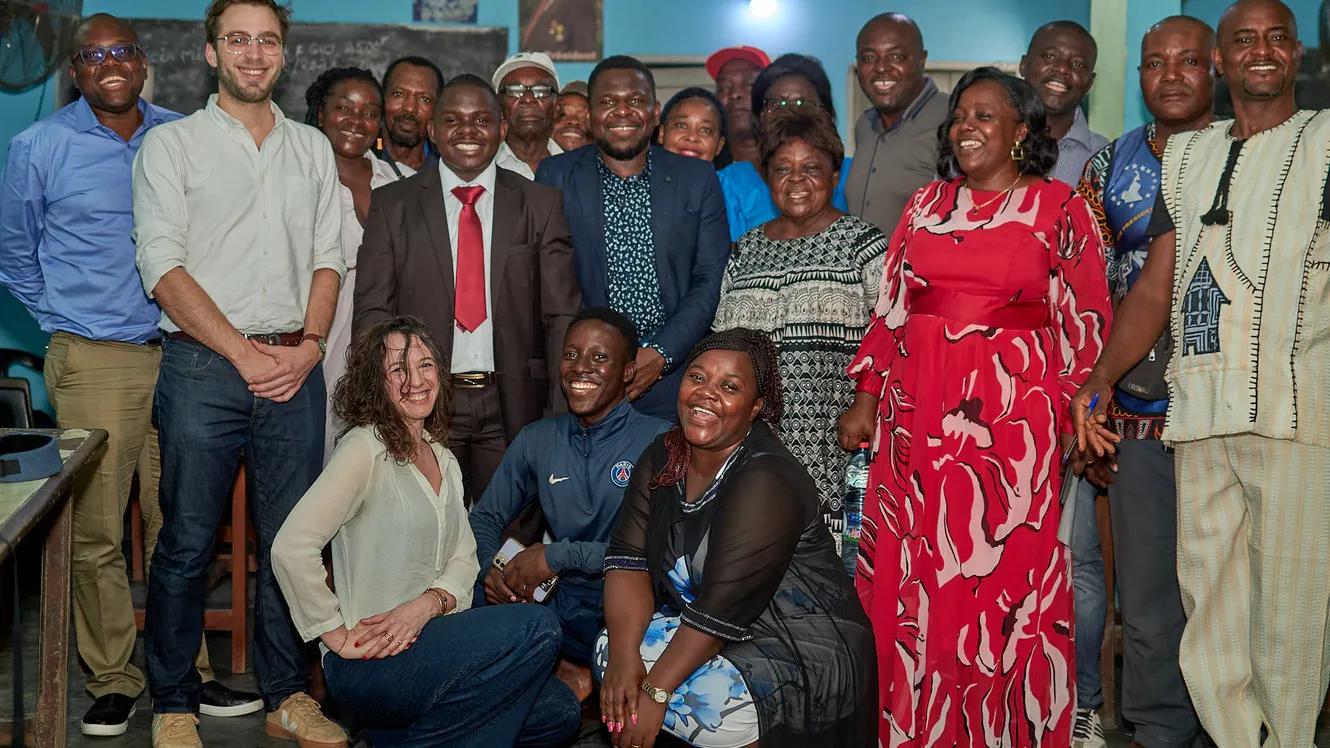
Projects funded by FID
16 février 2026
Impact
News and Insights
13 November 2023
Projects funded by FID
Cameroon
Social protection


In 2022, with the help of a Preparation grant from FID, Social Broker designed a prototype for TontineRe, a reinsurance product that enables financial associations (known as “tontines”) to improve the social insurance cover offered to their members. In 2023, the Cameroon association received a second stage 1 grant from FID, which will be used to trial the project with 80 tontines for a year.
The pilot phase of this project was launched last April, in Douala, Cameroon, in the presence of a FID team. Omer Zang, the founder of Social Broker, has answered three questions from FID about TontineRe and the launch of this new project phase.
Tontines are the main source of savings and credit available to individuals in Africa. This is especially true for workers in the informal sector. Tontines use a system of revolving credit which greatly facilitates transparency and monitoring of loans and savings within a relatively small circle. Here, tontines are a replacement for formal banks. They serve as a bank for those who are “excluded”. As a result of the difficulties faced in obtaining loans from formal banks, several informal (and even small formal) economic operators rely on tontines to meet their working capital or investment needs.
In Cameroon, tontines are the most commonly used framework for a type of social insurance paid in the form of assistance or emergency funds. The statutes on which the vast majority of tontines are based contain sections entitled “Assistance for Members”. These sections outline how this assistance is distributed and financed. These provisions are used in the case where a member has been the victim of or experienced an unfortunate event (such as death or illness), or is celebrating a happy event (like marriage). The sums paid are fixed amounts and the aim is not necessarily to provide compensation in the same way as formal insurance. In view of the low rate of coverage provided by the national social security system (less than 2 percent), such emergency funds provide the majority of these countries with a certain degree of cover against risk, a mechanism which, while embryonic in nature, serves as an endogenous foundation for a more comprehensive social protection system.
The tontines in Cameroon offer an opportunity to meet up with friends and members of the same community, representing a family in the wider sense in Africa. This function is the cement that holds together a system which relies on trust and peer pressure to maintain the financial mechanisms in place. It also works as a traditional kind of social network.
The idea for TontineRe first came about from a feeling that we needed to address a form of mass social injustice and offer social protection to the most vulnerable people. Seeing many families experiencing a “lack of tranquility” in their everyday lives, despite being active and having a certain sense of solidarity, convinced us of the need to transform this rudimentary solidarity into a more robust, formal system.
Secondly, the opportunity to develop TontineRe arose by combining several fields of social science. In fact, the issue of social protection cuts across several disciplines. The idea of TontineRe as a social insurance product resulted from a collective and multidisciplinary approach involving microeconomics, financial techniques, statistics and even public health.
Finally – and this was perhaps the key trigger – TontineRe was driven by a feeling that there have not been enough endogenous development support initiatives to date. In other words, they are rarely inspired by what the beneficiaries themselves are already doing to address the most common problems relative to this time and their specific situation. TontineRe is simply about modernizing a solution that its beneficiaries were already using by overcoming the shortcomings observed.

Until now, TontineRe has been an innovative product supported by little or no evidence. We expect the following results from the pilot phase:
Initially, the challenges of this pilot phase concern encouraging people to accept and sign up to the TontineRe model. The second step will be about testing TontineRe’s capacity in order to expand the partnership involved in its development by enlisting support from the public and private sectors to make it viable on a broader scale.
In this priming phase financed by FID, TontineRe is proving its worth as a product for financial inclusion through its capacity to bring informal financing closer to formal financial systems. Based on this experience, our vision is that TontineRe will provide a pathway forward for tontines in Africa, where there is a general consensus in support of more universal social protection and greater social justice for all.

News
Discover the latest news from FID
Explore FID's news
Projects funded by FID
16 février 2026

Projects funded by FID
28 novembre 2025
Supporting men living with HIV in South Africa through a peer-led intervention

Publications and resources
27 novembre 2025